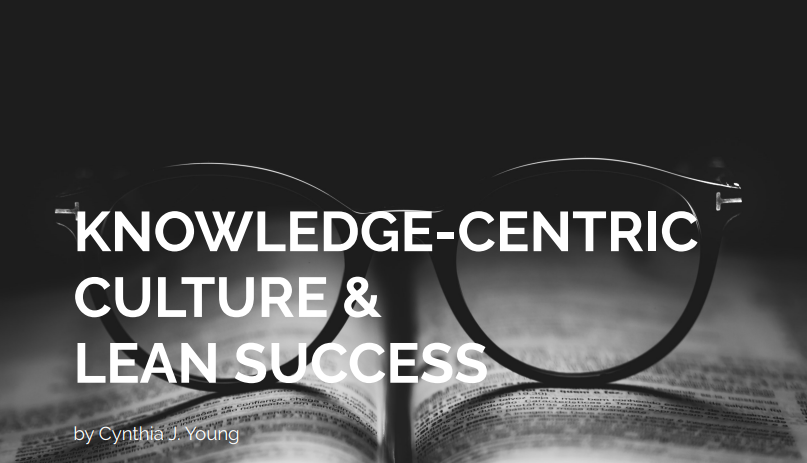Feb20

The essence of lean management lies in maximizing value while minimizing waste, fundamentally transforming the way organizations operate and deliver. Central to achieving a lean enterprise is the efficient incorporating the management of knowledge—creating, sharing, utilizing, and maintaining it.
Knowledge management (KM) practices play a pivotal role in this context, providing the structure and tools to capture, distribute, and effectively use knowledge through sharing and transfer of explicit and tacit knowledge and converting the knowledge as part of the knowledge flow.
Explicit knowledge is knowledge that is written as processes, procedures, emails, or presentations as examples. It’s basically any knowledge that is documented, but it must be findable for others to use to be effective. If someone can’t find or access stored knowledge, or isn’t aware that it exists, it’s not useful at all.
Tacit knowledge is knowledge based on experience. It’s gained from others through stories on the work floor, during downtimes at desks, by the coffee pot or watercooler, or as is in the Navy, it’s when Sailors step out to the smoke break areas underway
Keywords: Lean Startup, Management, Leadership
 Lateral Moves: The Most Overlooked Succession Strategy in Companies
Lateral Moves: The Most Overlooked Succession Strategy in Companies The Asset Play: Timing, Structure & Global Arbitrage
The Asset Play: Timing, Structure & Global Arbitrage  The Orchestra Needs a Conductor: Why Multi-Model Agents Require H2E Governance
The Orchestra Needs a Conductor: Why Multi-Model Agents Require H2E Governance The Role of Memory in Modern-day Business
The Role of Memory in Modern-day Business The Architectures of Permanence: A Comparative Analysis of the "Big Three" AI Strategies (2026)
The Architectures of Permanence: A Comparative Analysis of the "Big Three" AI Strategies (2026)